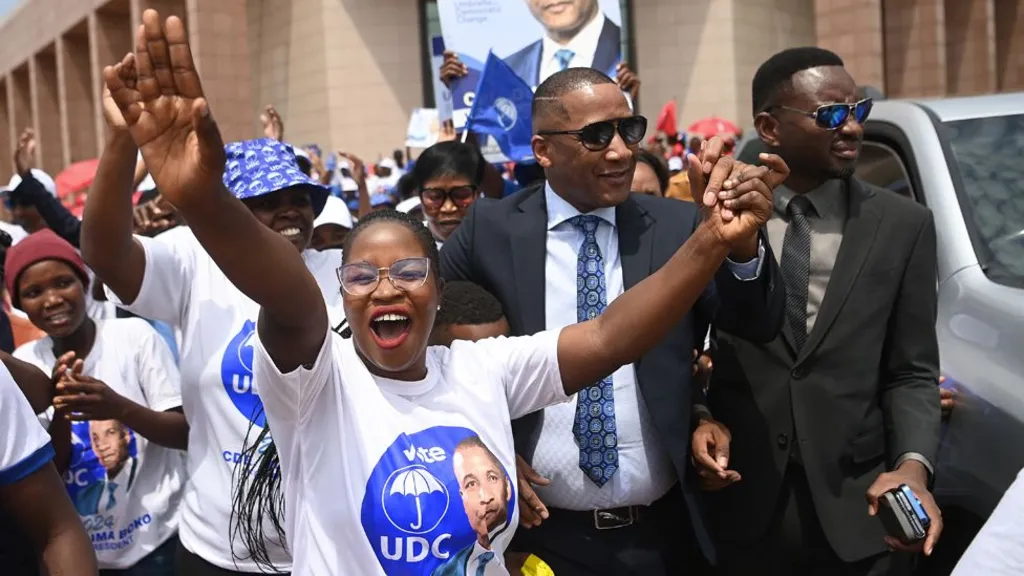Botswana ruling party rejected after 58 years in power
3 min read

In a stunning turn of events, voters in Botswana have decisively rejected the Botswana Democratic Party (BDP), which has been in power since the nation’s independence in 1966. As of early Friday morning, the BDP had managed to secure only one parliamentary seat, signaling a dramatic shift in the political landscape of this diamond-rich southern African country.
President Mokgweetsi Masisi, who has held office since 2018, acknowledged the defeat, admitting that the BDP had lost “massively.” In a press conference, he stated, “I will respectfully step aside and participate in a smooth transition process ahead of inauguration,” encouraging his supporters to remain calm and support the incoming government.
The opposition coalition, the Umbrella for Democratic Change (UDC), led by human rights lawyer Duma Boko, has emerged as the clear victor, claiming 25 seats in the early counts. The UDC is on track to surpass the 31-seat threshold needed for a parliamentary majority, positioning Boko to potentially become the next head of state when parliament convenes.
The BDP’s long tenure has seen significant developments in Botswana, yet recent years have been marked by economic challenges, including sluggish growth and rising unemployment. These issues have eroded the party’s support base, leaving many citizens disillusioned. Kgoberego Nkawana, a newly elected UDC MP, highlighted the struggles facing young people in Botswana, stating, “The unemployment rate is very high, and people are living literally on handouts from the government because there are no jobs. So it’s really bad.” The UDC has pledged to create between 450,000 and 500,000 jobs within the next five years as part of its new economic strategy, which aims to foster equitable wealth distribution.
In addition to the UDC’s success, the Botswana Patriotic Front (BPF), a party formed by former President Ian Khama after splitting from the BDP, has secured five seats. The Botswana Congress Party (BCP) has also made its presence felt, winning seven seats in the early results. This reshuffling indicates a shift in public sentiment and the desire for new leadership.
Supporters of the UDC have taken to the streets in celebration, particularly in the capital city of Gaborone and other regions. The atmosphere is one of hope and anticipation for change, as the UDC’s platform resonates with many voters who have experienced economic hardships under the BDP’s governance.
Masisi’s campaign was built around the promise of change, yet it failed to convince enough voters of the BDP’s capability to address pressing issues. As official results are expected to be released later on Friday, the political landscape of Botswana is poised for significant transformation.
With the UDC at the helm, the citizens of Botswana are looking forward to a government that prioritizes economic revitalization and job creation, striving to ensure that the nation’s wealth benefits all its people, not just a select few. This historic electoral shift marks the end of an era for the BDP and the beginning of a new chapter in Botswana’s political history.